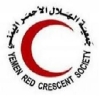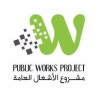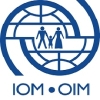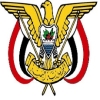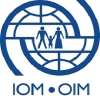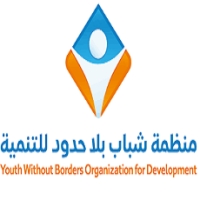Terms of Reference for Individual Consultant/ Consultancy Firm - Independent Evaluation
Introduction:
The Youth Services Center in Taiz was established in October 2020 and started its activities in January 2021, while the Youth Training and Rehabilitation Center (YTRC) in Aden was rehabilitated in 2021 and started its activities in 2022. The YTRC is based in the 22nd of May Stadium in Aden and being operationalized in partnership with the Ministry of Youth and Sport. Both centres are operated as a safe space for young men and women (18-35 years old) in order to increase their opportunities for participation, protection, prevention, partnerships and reintegration through a various types of activities including: capacity building activities, health (reproductive health), psychological and case management support services. Organizing sport activities is also one of the services of the two centers. The centers also work with other relevant stakeholders including governmental bodies, private sector and civil society organizations to collaborate in addressing youth’s needs.
This call invites independent consultants or consultancy firms to apply for a consultancy service aimed at evaluating the impact of the Youth Services Centers in Taiz and the Youth Training and Rehabilitation Center in Aden.
The purpose of this consultancy service: this consultancy service is to:
- Conduct a comprehensive assessment of the feasibility and overall impact of the Youth Services Centers in Taiz and the Youth Training and Rehabilitation Center in Aden, examining how effectively the centers have achieved their intended objectives and outcomes.
- Identify and document lessons learned from the implementation and operation of these centers, capturing both successes and challenges.
- Highlight best practices that can be replicated or scaled in similar contexts to enhance youth services and programs.
- Provide clear, actionable recommendations for improvement, focusing on how the centers can optimize their services, strengthen their impact on youth development, and ensure long-term sustainability.
The Scope of the evaluation:
The evaluation will cover the full range of activities, outputs, and outcomes of the Youth Services Centers (YSCs) in Taiz and the Youth Training and Rehabilitation Center (YTRC) in Aden, from their establishment to the end of 2024. It will assess the relevance, effectiveness, efficiency, impact, and sustainability of the centers, taking into consideration the resources used, the political, social, and security contexts, as well as any other constraints that may have influenced their operations. Special attention will be given to gender inclusion and stakeholder engagement. The evaluation will be conducted in October and November 2024, with the final report to be submitted by 15 December 2024. The consultant will use the six evaluation criteria, tailoring the questions as needed to ensure a thorough assessment of the centers’ performance and long-term impact.
1. Relevance:
- Assess the alignment of the centers’ programs and services with the needs of youth in Taiz and Aden, particularly in the context of ongoing conflict and socio-economic challenges.
- Determine how well the centers' objectives and activities correspond to national youth development strategies, including MoYS Strategic Plan and UNFPA's strategic goals.
2. Effectiveness:
- Evaluate the extent to which the centers have successfully met their stated objectives, including improving youth employability, fostering leadership skills, and promoting psychosocial well-being.
- Measure the success rate of vocational and life skills training provided by the centers in terms of youth employment and empowerment.
- Review the quality and accessibility of services offered by the centers, including the impact of these services on youth beneficiaries.
3. Efficiency:
- Analyze how efficiently resources (financial, human, and material) have been utilized by both centers to deliver their services and programs.
- Assess the operational and management processes of the centers, identifying any bottlenecks or inefficiencies that may have hindered program implementation.
4. Impact
- Determine the short- and long-term impacts of the centers on the lives of young people in Taiz and Aden, particularly in terms of employment, community engagement, and personal development.
- Evaluate how the centers have contributed to broader outcomes, such as peacebuilding, social cohesion, and conflict mitigation, in the region.
- Examine the effects of the centers' programs on local communities and stakeholders.
5. Gender and Inclusion:
- Examine the inclusiveness of the centers' programs, with a specific focus on gender, ensuring that services are equitable and address the needs of both young men and women, including vulnerable and marginalized groups.
- Assess how the centers address specific challenges faced by female youth in accessing services, skills training, and employment opportunities.
6. Stakeholder Engagement:
- Review the involvement of key stakeholders (local authorities, civil society, youth organizations, and international partners) in the design, implementation, and monitoring of the centers’ activities.
- Assess the level of coordination and collaboration between the centers and other actors working in the youth development space in Yemen.
Specific tasks of the Consultant:
The consultant will be responsible for carrying out the following tasks to ensure a comprehensive evaluation of the Youth Services Centers (YSCs) in Taiz and the Youth Training and Rehabilitation Center (YTRC) in Aden:
1. Inception Phase:
- Conduct an initial review of all relevant project documentation, including previous evaluations, progress reports, and monitoring data.
- Develop an inception report outlining the evaluation framework, methodology, data collection tools, and a detailed work plan. This report will be submitted for approval by UNFPA before fieldwork begins.
2. Stakeholder Engagement:
- Identify and liaise with key stakeholders, including center staff, youth beneficiaries, local authorities, and relevant partners.
- Facilitate consultations with relevant stakeholders through Key Informant Interviews (KIIs), Focus Group Discussions (FGDs), and other appropriate methods.
3. Data Collection:
- Design and implement quantitative and qualitative data collection tools, including surveys, interviews, and FGDs, tailored to assess the centers' performance across the six evaluation criteria (relevance, effectiveness, efficiency, impact, sustainability, and inclusion).
- Conduct field visits to the centers in Taiz and Aden (if security conditions allow) or utilize alternative methods such as virtual meetings to engage with beneficiaries and stakeholders.
- Ensure that data collected is disaggregated by gender and other relevant variables to capture the inclusiveness of the centers' services.
4. Analysis and Synthesis:
- Analyze the collected data to evaluate the performance and impact of the centers, with a focus on the key evaluation questions and criteria.
- Synthesize findings into clear and actionable insights, identifying both the strengths of the centers and areas for improvement.
- Highlight best practices, lessons learned, and innovative approaches that can be replicated in similar contexts.
5. Draft Report Submission:
- Prepare and submit a draft evaluation report that presents the key findings, conclusions, and preliminary recommendations. The report should be structured according to the six evaluation criteria and include both qualitative and quantitative data analysis.
6. Validation Workshop:
- Present the preliminary findings and recommendations in a validation workshop with UNFPA and YWOBD staff, stakeholders, and partners to gather feedback and refine the evaluation report.
- Incorporate feedback from the validation process into the final report.
7. Final Report Submission:
- Finalize and submit the evaluation report by the agreed deadline, ensuring it includes a comprehensive set of recommendations for enhancing the impact, efficiency, and sustainability of the centers.
- Deliver a presentation summarizing the key findings, recommendations, and lessons learned for UNFPA and key stakeholders.
Deliverables, roles and timeline:
|
Deliverable |
Description |
Timeline |
|
1. Inception Report |
A detailed report outlining the evaluation framework, methodology, data collection tools, and a work plan. It will include a review of all relevant documents. |
Within 1 week of contract |
|
2. Data Collection Tools |
Draft surveys, interview guides, and FGD protocols for approval before fieldwork begins. |
1 week after inception report approval |
|
3. Fieldwork and Data Collection |
Completion of data collection through interviews, FGDs, surveys, and field visits (where possible). |
October – November 2024 |
|
4. Draft Evaluation Report |
A draft report containing preliminary findings, analysis, and initial recommendations, aligned with the six evaluation criteria. |
End of November 2024 |
|
5. Validation Workshop |
Presentation of preliminary findings to UNFPA and key stakeholders for feedback and discussion. |
Early December 2024 |
|
6. Final Evaluation Report |
A final report incorporating feedback from the validation workshop. The report will include recommendations, lessons learned, and best practices. |
15 December 2024 |
|
7. Presentation of Findings |
A presentation summarizing the key findings and recommendations to UNFPA and stakeholders. |
Along with final report |
The final report should include relevant appendices such as charts, terms of reference, evaluation tools, a list of individuals interviewed, and documents reviewed.
All deliverables may be submitted in either Arabic or English, with the exception of the final version of the final report, which must be provided in both English and Arabic.
All deliverables are subject to the approval of UNFPA and YWBOD.
Work Arrangements:
- The consultant may assemble a team to achieve the consultancy objectives. The technical offer should detail the team structure, including the names, roles, and responsibilities of each member, with their CVs provided as annexes.
- Evaluation management committee, comprising key UNFPA and YWOBD staff and relevant stakeholders, will be established to review and approve key deliverables.
- The consultant is expected to work both remotely and on-site. All related activities should be clearly outlined in the technical proposal and reflected in the financial offer.
Qualifications/Competencies/ Experience:
YWBOD is calling individual consultants and consultancy firms to apply if meet the following requirement:
- Individual applicants and consultants to be hired by applicant consultancy firms shall be based, registered (for firms) in the Yemeni government-controlled areas with good accessibility to the target governorates.
- The consultants shall have bachelor's degree in monitoring and evaluation, management, CSOs management, development or related fields.
- The consultants and firms shall have relevant work experience in evaluation similar projects and understanding of the context and the general social, economic and political environment that influences youth landscape in Yemen and in the target governorates of Aden and Taiz in particular.
- Consultants and firms shall have excellent and proven analytical, organizational and communication skills, ability to prioritize and work with minimum supervision,
- The ability to use various means and tools of data collection both online and offline.
- The ability to prepare technical reports in both Arabic and English.
Remuneration and Method of Payment:
- The consultant shall quote the costs according to the working hours of the team in addition to any costs may be required for any field/in-person data collection activities. No other costs will be covered by YWBOD except the cost mentioned it the signed contract. So, the applicant's financial offer shall describe the costs of all the activities including developing the data collection tools, implementing the data collection activities, analyzing the data collected, developing and amending the drafts
- The Consultant shall be paid in bank cheque of bank transfer in two installments: 1) 40% of the total cost after delivery and approval of the inception report and mythology, 2) 60% of the final cost after the delivery and approval of the final report and any other deliverables.
- Penalty: delay in the delivery of the deliverables, without just and reasonable mutually agreed explanation, will make the consultant subjected to 10% of reduction per a week of the remaining installment. YWBOD has the right to terminate the contract if there is one month delay of delivering the any of the for-mentioned tasks/deliverable.
Application timeline and how to apply:
Interested consultants/firms should submit a concise proposal for how the work will be carried out, describing the methodology and technical approach, time plan, scheduled deliverables, team members, and case studies of previous experience as a third party to evaluate projects and activities related to youths, budget, any concerns or expected risks or recommendations. The proposal shall include a technical and financial offer together with all the supporting documents (CVs), Registration Certificate (for firms), samples of related previous works and any supporting document).
Applications shall be submitted to: عنوان البريد الإلكتروني هذا محمي من روبوتات السبام. يجب عليك تفعيل الجافاسكربت لرؤيته., with the subject line ‘YWBOD Youth Centers Evaluation by 15 October 2024, while questions and inquiries can be sent to the same email up to 10 October 2024, with “inquiry about YWBOD Youth Centers Evaluation"
تاريخ النشر: 2024/10/02م





